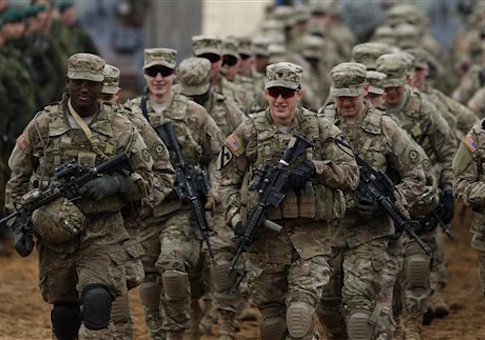Undersecretary of Defense for Personnel and Readiness Brad Carson said that the Army will be "near breaking point" if sequestration holds in October.
Carson, who was nominated to his post by President Obama, said that sequestration poses a "grave threat" to the readiness of U.S. forces during an interview with Stars and Stripes published Monday.
Carson said the U.S. Army is at its smallest size since before World War II, and that if sequestration holds, the force could be reduced to 420,000 active duty soldiers.
"The Army’s near breaking point if you go that low, I think," Carson said. "Already we see the fact that people are demanding the Army do many missions—from West Africa and the Ebola crisis to now resurgent problems in Iraq, Syria. Russia, of course, posing a threat."
"So the demand on the Army is not slackening at all, and at the same time, their numbers are falling," he added. "This has a real cost, a real cost to their readiness, because when they’re out in the field, they’re not training. Across all the services—the Marine Corps the same—the personnel cuts have been deep. And if they go much deeper, they will become a matter of grave worry to us all."
Carson, a former Democratic congressman from Oklahoma, named sequestration as a "threat" that gives him sleepless nights.
"Sequestration and the budget cuts have hurt readiness in the past. And they’re revisited upon us. And I am fearful that our readiness will suffer again, in a way that sometimes takes five or ten years to dig out of," Carson said.
The Army announced in July that it plans to cut 40,000 troops and lay off 17,000 civilian employees over the next two years. Ahead of his retirement, former Army Chief of Staff Gen. Ray Odierno expressed similar concerns about cuts endured by the Army during the Obama administration.
"In my mind, we don’t have the ability to deter," Odierno said in July. "The reason we have a military is to deter conflict and prevent wars. And if people believe we are not big enough to respond, they miscalculate."
Carson also named Russia and China as the gravest "geopolitical" threats that face the United States today, echoing other top Pentagon officials who have voiced alarm about both countries. Both Russia and China have been behind major cyber attacks on government computer systems.
